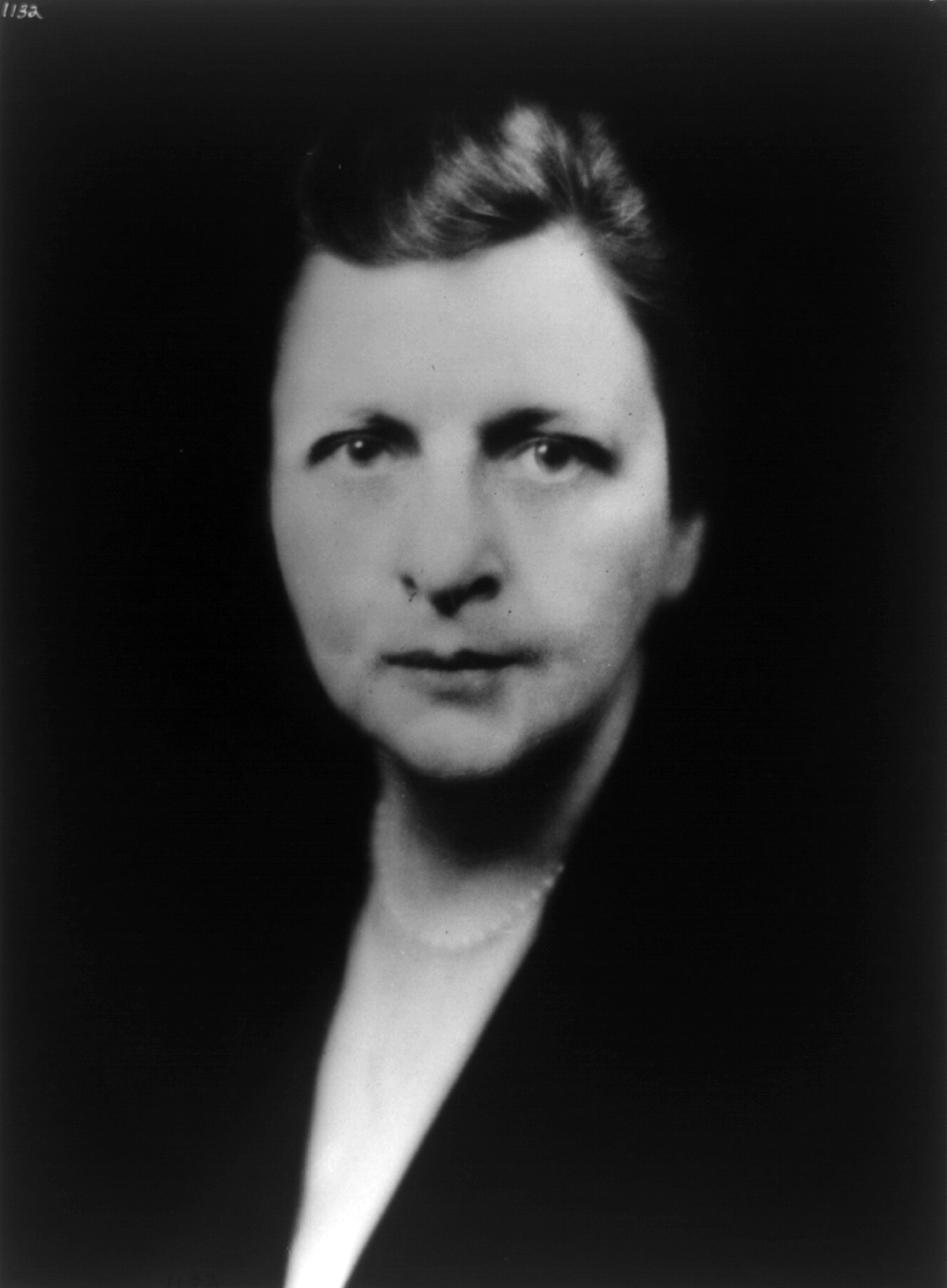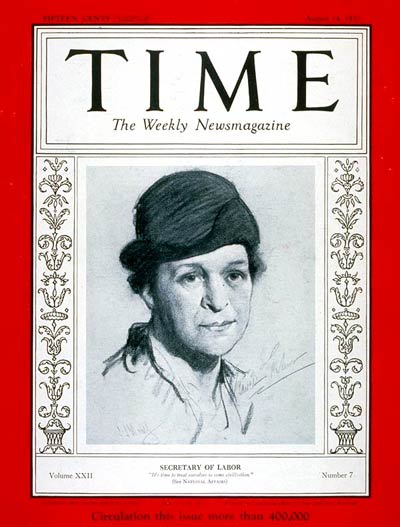
Last year, I took a continuing education class at Northwestern University called Notable Achievement: Focus on Women. Ironically only three of the nine lecturers were women. Nevertheless, let’s persist because in this class I learned about the life of Frances Perkins, FDR’s Secretary of Labor for all twelve years of his administration. She was the first female cabinet secretary and a woman you should know and admire.
Frances Perkins, FDR’s Secretary of Labor for all twelve years of his administration, was the first female cabinet secretary and a woman you should know and admire.
You should also know about the Triangle Shirtwaist Factory fire, which Perkins saw first-hand, on March 25, 1911. Because sweat shops were allowed to function without regulations back then, 145 young immigrant women died. They were unable to escape the fire that broke out on the eighth floor of the building because the door was locked from the outside (to make sure workers didn’t take breaks), the fire hose was rotted and its valve was rusted shut, and the fire escape was too narrow for 600 workers to climb down. Much like the horror of 9/11, 58 people jumped to their death and the rest died in the fire.
After Perkins had observed first-hand the devastation of the Triangle Shirtwaist Factory fire, she was deeply committed to securing workers’ rights. And she realized that in order to make progress, she had to work with politicians and legislators and be open to compromises. In that era, social reformers crossed party lines. Teddy Roosevelt, a Republican, recommended Perkins to serve on the New York Commission on Safety.
Frances Perkins came from a life of privilege, but was raised to have a social conscience. Born in 1880, she was a bright, precocious child raised with New England Yankee values of self-reliance and lucky to be in a family that believed girls deserved an education. A college graduate, rare for women back then who still could not vote, Perkins spent time at Hull House in Chicago and became interested in immigrant issues, child labor, sexual slavery, and social injustice among the factory working class.
Through her association with New York politicians, she met Franklin Roosevelt and worked with him on the state labor commission when he became governor. After FDR was elected president in 1933, he appointed her to be his Secretary of Labor. At that point, America was in the throes of the Great Depression with an unemployment rate of 23 percent and income inequality out of control.
Perkins had an unbelievably ambitious agenda.
- Improve worker safety, hours, and pay
- Abolish child labor
- Create the Civilian Conservation Corps and Public Works Administration to get people back to work
- Draft the Social Security Act of 1935
- Pass the National Industrial Recovery Act
- Chair the committee on economic security, including unemployment insurance, working standards, and labor’s right to organize and collective bargaining
- Create a minimum wage and 40-hour work week
- End corruption, fraud, and abuse in the Immigration Bureau
- Professionalize the Bureau of Labor Statistics
- Staff the children’s’ and women’s bureaus
Her one regret was that she couldn’t secure health insurance as a right for all Americans. Not only are we still unable to do this, but many of the rights she fought for have eroded. Unions have lost membership and bargaining power. Income inequality is on the upswing. Women’s participation in the workforce is more challenging because our nation lacks programs to support the elderly and provide childcare, tasks that generally fall to women.
Thanks to an excellent lecture by Professor Robert Coen, I now know about a woman whose service to our country touched the lives of many Americans. Frances Perkins dedicated her life to helping people rise from situations like working in sweatshops twelve hours a day, seven days a week, for a weekly pay of $15. May her example of compassion, caring, and dedication be an inspiration to us today of what can be done through hard work and persistence. She was truly a woman to be admired.
I invite you to read my book Terribly Strange and Wonderfully Real and join my Facebook community.
Boomer. Educator. Advocate. Eclectic topics: grandkids, special needs, values, aging, loss, & whatever. Author: Terribly Strange and Wonderfully Real.




Thanks for this story, Laurie. I remember learning about Frances Perkins when I was young, because I read a lot about FDR. They didn’t teach about her in school, and they should have! Interesting that she saw the Triangle Shirtwaist fire firsthand. My grandmother was a garment worker on the lower East Side at that time, but fortunately not for Triangle, or I probably wouldn’t be here.
That story hits close to home for you. I didn’t learn anything about her in school. My father was a history buff and huge FDR fan, so I had heard of her. Was glad to learn more by attending the lecture.
Thanks, Laurie, for an inspiring and informative story. I didn’t realize the Frances Perkins connection with the Triangle Shirtwaist fire either. Like Suzy’s grandmother, my maternal grandmother was a garment worker on the lower East Side, and also fortunately not for Triangle. She had many stories about the working conditions she endured!
Despite what most people seem to think these days, history does matter. My heritage is also from the garment industry (actually tailors), but in the Detroit area. Not an easy way to make a living. Sadly, workers today are still struggling with some terrible work environments.
Beautifully written tribute to a woman who has been largely forgotten, despite her hard-won position and humane accomplishments. I particularly appreciated the detail with which you described the arc of her development as a social-justice activist (Hull House!) and the sense you gave me of the perennial nature of the struggles we will continue to wage. Thanks!
Thanks, Charles. It wasn’t easy to think of one woman I admired, so I turned to history for one who has likely been left out of current history texts. I want my granddaughters to know about her.
Thanks for this great history lesson, Laurie. I knew about the Triangle Shirtwaist Factory fire (the anniversary is today). But I did not know about Francis Perkins, who accomplished so much against long odds. Truly outstanding.
Thanks Betsy for remembering today was the anniversary of the Triangle Shirtwaist Factory fire, 108 years ago. Much has improved in over a century, but in many parts of the world they are not so different. And the labor movement it spawned is struggling these days.